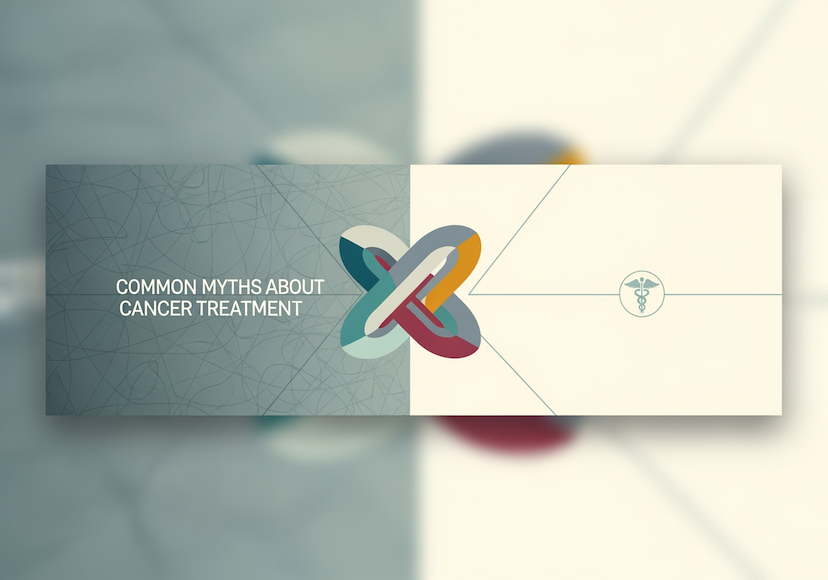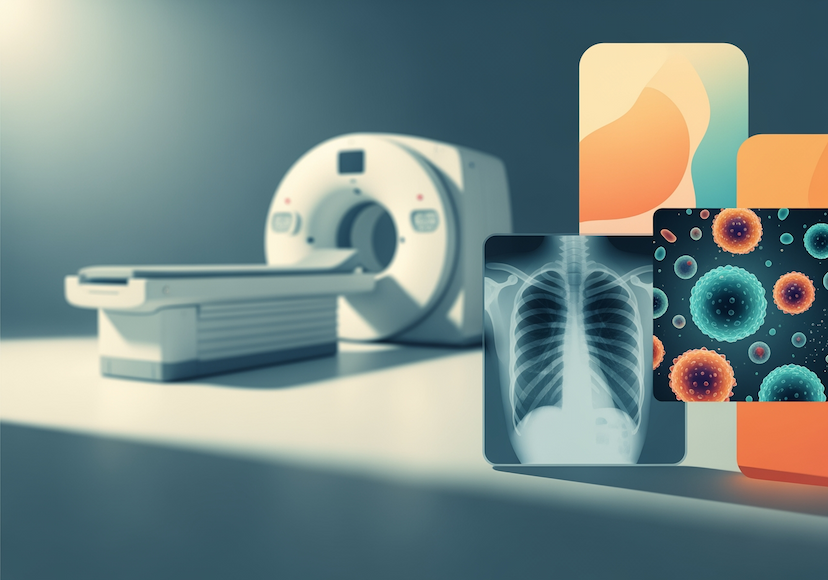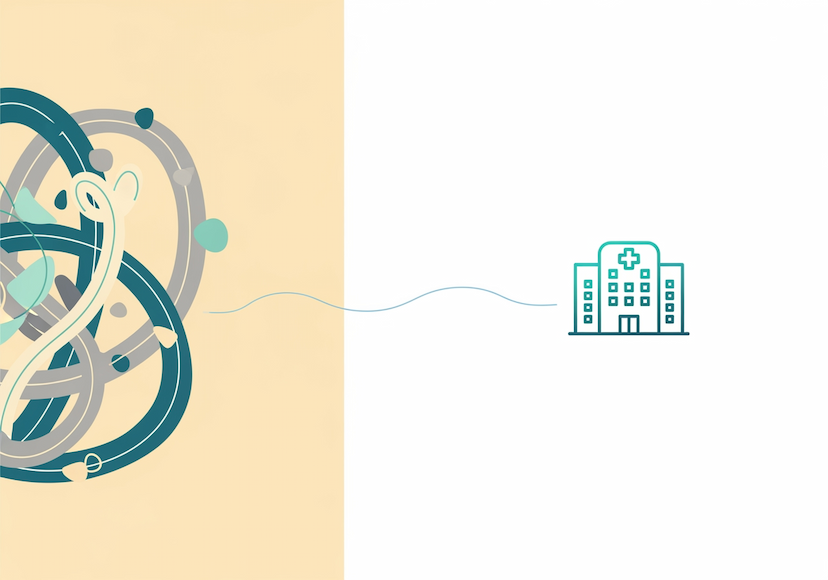
Treatment Options for Thyroid Cancer
26 Jul, 2024
 Healthtrip Team
Healthtrip TeamFacing a thyroid cancer diagnosis is daunting, especially when considering treatment options abroad. Patients from Russia may feel overwhelmed by the process of finding the right care and navigating a foreign healthcare system. The uncertainty of choosing the best hospital, understanding treatment protocols, and managing logistics can add to the stress of dealing with cancer. Ensuring high-quality care while being away from home is a significant concern for many. This comprehensive guide aims to provide Russian patients with all the necessary information about thyroid cancer treatment in the UK, from understanding treatment options to selecting top hospitals and managing travel logistics.
Most popular procedures in India
Thyroid cancer arises in the thyroid gland, a butterfly-shaped organ at the base of the neck. It is relatively uncommon but treatable, especially when detected early. The four main types of thyroid cancer are:
Wellness Treatments
Give yourself the time to relax
Lowest Prices Guaranteed!

Lowest Prices Guaranteed!
2. Follicular Thyroid Cancer: Less common and potentially more aggressive.
3. Medullary Thyroid Cancer: Can be hereditary and is more challenging to treat.
4. Anaplastic Thyroid Cancer: Rare and highly aggressive.
Why Choose the UK for Thyroid Cancer Treatment?
The UK is renowned for its advanced healthcare system and high standards of medical care. Key reasons to consider the UK for thyroid cancer treatment include:
- State-of-the-art Facilities: Leading hospitals are equipped with the latest technology.
- Expertise: Access to top specialists in thyroid cancer.
- Multidisciplinary Care: Comprehensive treatment plans involving endocrinologists, oncologists, and surgeons.
- Clinical Trials: Opportunities to participate in cutting-edge research and treatment protocols.
Thyroid cancer, although relatively rare, can significantly impact a person's health and quality of life. The good news is that advancements in medical technology and treatment methods have made it possible to manage and treat thyroid cancer effectively. Understanding the available treatment options is crucial for patients and their families to make informed decisions and take proactive steps towards recovery.
Surgical Options
Thyroidectomy
Thyroidectomy is a critical surgical procedure for treating thyroid cancer, and the choice between total and partial thyroidectomy depends on the cancer's characteristics and extent.
A. Total Thyroidectomy
Total Thyroidectomy involves the complete removal of the thyroid gland. This approach is typically recommended when.If the cancer has extended beyond the thyroid or there is a high risk of recurrence, removing the entire gland helps eliminate all cancerous cells. By removing the entire thyroid, the procedure significantly reduces the risk of cancer returning. Patients will require lifelong thyroid hormone replacement therapy to compensate for the loss of the gland. Although this method simplifies follow-up care and monitoring, it involves ongoing management of hormone levels.
B. Partial Thyroidectomy
Partial Thyroidectomy, also known as lobectomy, involves removing only a portion of the thyroid gland. This approach is generally used when.If the cancer is confined to one lobe or area of the thyroid, a partial thyroidectomy may be sufficient. This less invasive procedure preserves some thyroid function, potentially reducing or eliminating the need for lifelong hormone replacement therapy. Additionally, it generally has a lower risk of complications, such as damage to surrounding structures.
2. Lymph Node Dissection: This involves removing lymph nodes around the thyroid to prevent the spread of cancer.
3. Radioactive Iodine Therapy:
Radioactive iodine (RAI) therapy is a specialized treatment used primarily for certain types of thyroid cancer, particularly papillary and follicular thyroid cancers. This therapy plays a crucial role in managing and treating thyroid cancer by targeting and destroying any remaining thyroid tissue or cancer cells after surgery.
RAI therapy involves the administration of radioactive iodine-131, a substance that is selectively taken up by thyroid cells. Since thyroid cells, both normal and cancerous, absorb iodine, the radioactive form of iodine accumulates in these cells and delivers a targeted dose of radiation. This radiation destroys the thyroid tissue and any residual cancer cells, minimizing the risk of recurrence.
The Process of Radioactive Iodine Therapy
1. Preparation: Patients may be asked to follow a low-iodine diet for a few weeks before the therapy to enhance the uptake of radioactive iodine by the thyroid cells.To increase the effectiveness of RAI therapy, patients may undergo thyroid hormone withdrawal to elevate TSH levels or receive recombinant TSH injections.
2. Administration: RAI is usually administered orally in the form of a capsule or liquid. The patient takes the radioactive iodine, which then circulates in the bloodstream and is absorbed by thyroid cells.
3. Isolation: After taking radioactive iodine, patients may need to stay in a hospital room for a few days to avoid exposing others to radiation. During this period, they should follow safety protocols to minimize radiation exposure to family members and others.
4. Post-Treatment: Patients will need to follow specific guidelines to avoid radiation exposure to others, including maintaining distance, avoiding close contact, and using separate bathroom facilities for a certain period.
Benefits of Radioactive Iodine Therapy
- Targeted Treatment: RAI specifically targets thyroid cells, making it an effective treatment with minimal impact on other tissues and organs.
- Non-Invasive: RAI is a non-invasive procedure compared to additional surgeries or other treatments.
- Reduced Recurrence: By destroying residual thyroid tissue and cancer cells, RAI significantly reduces the risk of cancer recurrence.
Side Effects and Considerations
While RAI therapy is generally safe, it can cause some side effects, including:
- Dry mouth and salivary gland inflammation
- Altered taste and smell
- Nausea
- Fatigue
Patients may also need lifelong thyroid hormone replacement therapy, as RAI destroys normal thyroid tissue along with cancerous cells. Radioactive iodine therapy is a cornerstone in the treatment of papillary and follicular thyroid cancers. By effectively targeting and eliminating residual thyroid tissue and cancer cells, RAI therapy helps reduce the risk of recurrence and enhances long-term outcomes for patients. Consulting with a healthcare provider is essential to understand the benefits, preparation, and post-treatment care associated with RAI therapy.
1. External Beam Radiation Therapy
External beam radiation therapy (EBRT) is a treatment option for thyroid cancer that involves directing high-energy radiation beams at cancerous areas. It is particularly useful in situations where surgery cannot completely remove the cancer or when the cancer has spread beyond the thyroid gland. EBRT uses advanced imaging and precision techniques to deliver targeted radiation to the cancerous tissues. The goal is to destroy cancer cells while minimizing damage to surrounding healthy tissues. This is achieved through careful planning and the use of sophisticated technology.
The Process of External Beam Radiation Therapy
1. Planning: Before starting EBRT, patients undergo a series of imaging tests, such as CT scans or MRIs, to determine the exact location and extent of the cancer. During simulation, patients are positioned in a way that will be replicated during each treatment session. This may involve creating custom molds or masks to ensure precise targeting of the radiation beams. Radiation oncologists use imaging data to create a detailed treatment plan, calculating the optimal dose of radiation and the angles from which the beams will be delivered.
2. Treatment Sessions: During each treatment session, patients are carefully positioned to match the setup used during the simulation. The linear accelerator, a machine that generates high-energy radiation beams, is used to deliver the treatment. Patients lie still while the machine rotates around them, directing radiation at the cancerous area. EBRT is typically administered over several weeks, with patients receiving treatments five days a week. Each session lasts only a few minutes, though the entire appointment may take longer due to setup and positioning.
3. Post-Treatment: After completing EBRT, patients will have regular follow-up appointments to monitor their progress and manage any side effects.
Benefits of External Beam Radiation Therapy
- Non-Invasive: EBRT is a non-invasive treatment, meaning no surgery or incisions are required.
- Precision: Modern radiation therapy techniques allow for precise targeting of cancerous tissues, reducing the risk of damage to surrounding healthy tissues.
- Effective for Advanced Cancer: EBRT is particularly beneficial for cases where thyroid cancer has spread to nearby structures or cannot be fully removed surgically.
Side Effects and Considerations
While EBRT is generally well-tolerated, it can cause some side effects, including:
- Skin irritation at the treatment site
- Fatigue
- Hoarseness or difficulty swallowing
- Dry mouth or changes in taste
Most side effects are temporary and can be managed with supportive care. It is important for patients to communicate any side effects they experience with their healthcare team to receive appropriate management. External beam radiation therapy is a valuable treatment option for thyroid cancer, especially in cases where surgery alone is insufficient. By precisely targeting cancerous areas with high-energy radiation, EBRT can effectively control the disease and improve patient outcomes. Consulting with a healthcare provider will help determine if EBRT is the right option based on individual circumstances and overall health.
2. Chemotherapy
Chemotherapy is a treatment option for thyroid cancer that is less commonly used but may be recommended for more aggressive forms, such as anaplastic thyroid cancer. This treatment involves the use of powerful drugs to kill cancer cells or inhibit their growth. Chemotherapy is typically used in cases where the cancer is not amenable to surgery or when it has metastasized and is not responding to other therapies. Despite its potential benefits, chemotherapy can have significant side effects, including nausea, hair loss, and increased risk of infection, which are managed through supportive care and medications.
3. Targeted Therapy:
Targeted Therapy involves the use of drugs designed to target specific molecules involved in the growth and spread of cancer cells. This approach is particularly useful for advanced thyroid cancer that does not respond to traditional treatments. Targeted therapy drugs work by interfering with specific pathways or proteins that cancer cells use to grow and survive. This type of therapy can be effective in treating cancers with particular genetic mutations or alterations. While targeted therapy often has a more favourable side effect profile compared to traditional chemotherapy, patients may still experience side effects, including fatigue, rash, or diarrhea.
4. Hormone Therapy:
Hormone Therapy is essential for managing thyroid cancer, particularly after a thyroidectomy. The thyroid gland produces hormones that regulate metabolism and various bodily functions. After the removal of the thyroid gland, hormone therapy is required to replace the missing thyroid hormones. This therapy helps maintain normal metabolism and also plays a role in suppressing the growth of any remaining cancer cells. Regular monitoring of hormone levels is necessary to adjust the dosage and ensure optimal management of the patient’s health and cancer treatment.
8. Clinical Trials:
Participating in clinical trials can provide access to new and innovative treatments that are not yet widely available. Patients should discuss this option with their healthcare provider to determine eligibility and potential benefits.
Navigating thyroid cancer can be challenging, but understanding the various treatment options empowers patients to make informed decisions about their care. Whether through surgery, radioactive iodine therapy, external beam radiation, chemotherapy, targeted therapy, hormone therapy, or clinical trials, there are effective ways to combat thyroid cancer and improve quality of life. Consulting with healthcare professionals to tailor a treatment plan to individual needs is essential for the best possible outcomes.
Related Blogs

Common Myths About Cancer Treatment Doctors Bust Them
Explore evaluations, innovations, hospital comparisons, and global success insights for

How Healthtrip Coordinates Cross-Border Medical Records for Cancer Treatment
Explore evaluations, innovations, hospital comparisons, and global success insights for

Top Pre-Surgery Tests Required for Cancer Treatment
Explore evaluations, innovations, hospital comparisons, and global success insights for

Why India Leads in Affordable Cancer Treatment Analysis
Explore evaluations, innovations, hospital comparisons, and global success insights for

Patient Satisfaction Scores for Cancer Treatment at Healthtrip Partner Hospitals
Explore evaluations, innovations, hospital comparisons, and global success insights for

How to Choose the Right Hospital for Cancer Treatment Using Healthtrip's Criteria
Explore evaluations, innovations, hospital comparisons, and global success insights for










